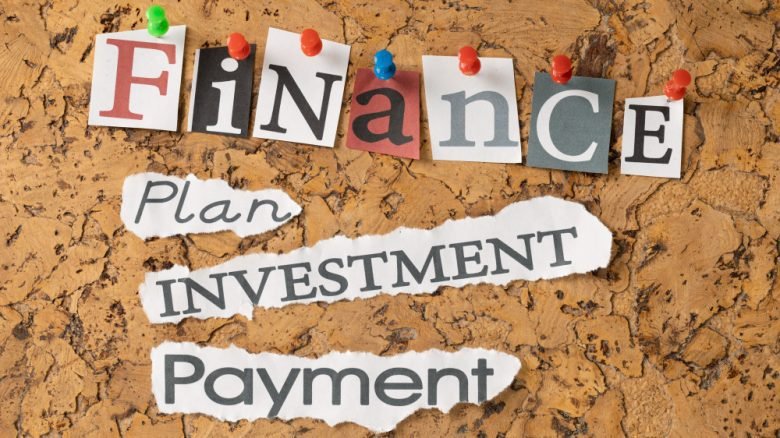Financial emergencies can strike anyone, regardless of their income or budgeting skills. While they’re unpredictable, you can take steps to prepare for them. In this comprehensive guide, we’ll delve into the distinction between financial emergencies and non-emergencies and explore effective strategies for handling these unexpected situations.
Understanding the Difference Between Financial Emergencies and Non-Emergencies

A financial emergency refers to an unforeseen expense that has the potential to disrupt your financial stability and lead to serious consequences if not addressed promptly. These emergencies often impact crucial aspects of your life, such as health, home, family, work, or relocation. Swift and well-coordinated actions are essential to mitigate the effects of financial emergencies.
On the other hand, non-emergencies encompass non-essential living expenses that won’t significantly affect your financial standing if delayed. For instance, postponing a wedding celebration or a family vacation wouldn’t have a substantial impact on your financial well-being.
Exploring the Most Common Financial Emergency Scenarios
To be better prepared for unexpected financial emergencies, it’s crucial to be familiar with the most common situations that may arise:
1. Medical Emergencies

Healthcare costs in the United States can lead to substantial medical bills, often leaving individuals burdened with significant debt. Even with health insurance, out-of-pocket medical expenses can accumulate rapidly, forcing individuals to consider withdrawing funds from retirement accounts.
2. Divorce
Divorce is a life event that, while not anticipated, can have far-reaching financial implications. Expenses related to legal proceedings and asset division can strain finances. Planning for this possibility can help mitigate the financial impact.
3. Car Breakdowns
Sudden car breakdowns can be costly, whether due to mechanical failures or natural disasters. Ignoring these issues can lead to more significant problems and safety hazards.
4. Sudden Unemployment
Losing a job unexpectedly can have a profound impact on finances, especially if there isn’t a substantial emergency fund in place.
5. A Death in The Family
The passing of a family member can result in emotional and financial challenges, particularly due to high funeral and burial expenses.
6. Unexpected Move
Forced relocations due to factors like job changes, divorce, or foreclosure can be expensive and overwhelming.
7. Unplanned Home Repairs
Household repairs, such as roof replacements or fixing foundation issues, can strain finances if not planned for.
8. Pet Emergencies
Owning a pet comes with potential unexpected health expenses, which can be costly without adequate preparation.
Effective Strategies for Handling Financial Emergencies
1. Create an Emergency Fund
Building an emergency fund is the cornerstone of financial preparedness. Establishing a savings account designated for emergencies can provide a safety net during unforeseen events. Begin by setting aside a small portion of your income regularly. Cutting unnecessary expenses and making gradual lifestyle changes can help free up funds for your emergency fund. Over time, your emergency fund will grow, providing you with greater financial security.
2. Take Preventive Measures
Proactively maintaining your health, home, and vehicle can help prevent certain emergencies. Regular health check-ups, proper car maintenance, and home repairs can reduce the risk of unexpected expenses. For instance, investing in regular car maintenance can prevent breakdowns and extend the lifespan of your vehicle. Similarly, addressing minor home repairs promptly can prevent larger and costlier issues from arising.
3. Utilize Personal Loans
Personal loans offer a reliable option for covering various financial emergencies. These loans, available from traditional banks or online lenders, provide funds to address urgent needs. Personal loans typically come with amounts of up to $50,000, with some options offering up to $100,000. The repayment is made over 1 to 5 years in equal monthly installments. To get a personal loan, you need to demonstrate a strong credit history and have a high-enough income for the requested amount.
4. Consider Online Loans
Online loans, especially those catered to individuals with bad credit, offer a convenient and fast solution. These loans can be obtained swiftly and from the comfort of your home. Online loans are innovative loans that are popular with bad credit borrowers. However, people with credit issues are not the only ones who use them. These financial options have a few more advantages over conventional loans. First, they are much faster to get. It typically takes you 24 business hours to access the funds in your checking account. Also, they can be obtained online from anywhere. You can apply without leaving your house and changing your schedule. Finally, they don’t affect your credit score.
Online lenders offer a wide range of options that are available with any credit. You can get a guaranteed $300 loan with bad credit or obtain an instant $5,000 loan with no credit check. The flip side of the coin is their cost. Online loans often come with higher than the national average interest rates. Make sure you do your research, for example, if you’re in Singapore, find a licensed money lender in Singapore.
5. Explore Credit Card Cash Advances
Credit card cash advances provide immediate access to funds but should be used cautiously due to higher interest rates. If you have a valid credit card, you can withdraw money from its balance within the limits set by an issuer. Such a cash advance is a lightning-fast way to get the needed funds because you don’t need to apply for it and wait for a loan decision from a lender. You can simply withdraw cash in a branch or ATM. However, a credit card cash advance can be expensive. It doesn’t have any interest-free promotional period. Interest rates are higher than on your regular credit card purchases and start accruing immediately.
6. Use Cash Advance Apps
Cash advance apps offer a quick way to secure short-term loans. These apps are accessible on smartphones and provide swift access to funds, but borrowers should be mindful of associated costs. Cash advance apps can provide you with fast short-term loans in a few clicks. You need to install one on your smartphone and sometimes pass a registration to get started. Then, fill out a simple loan request form to pre-qualify. A lender will check your details and email you back with a response. If approved, the funds will be deposited to your bank account shortly after you e-sign a loan agreement. Cash advance apps will suit you if you need a small amount for a short period. Some of them cap their loans at $300 or $1,000. Also, loans from cash apps can be expensive.
Conclusion:
Financial emergencies can disrupt your life, but planning and preparation can minimize their impact. By creating an emergency fund, taking preventive measures, and considering various borrowing options, you can navigate unexpected expenses with greater ease and confidence. Remember, being proactive today can help you better weather the storms of tomorrow.
Frequently Asked Questions
Answer: Regular health check-ups, proper maintenance of your home and vehicle, and sound financial planning can help mitigate the risk of certain emergencies. For example, regular car maintenance can prevent breakdowns, and timely home repairs can prevent more significant issues.
Answer: When considering personal loans and credit card cash advances, weigh the interest rates, repayment terms, and your current financial situation. Personal loans often offer more favorable terms, while credit card cash advances provide immediate access to funds.
Answer: Begin by setting aside a small portion of your income regularly, even if it seems modest. By making minor changes in your spending habits and prioritizing saving, you can gradually build a more robust emergency fund over time.
Answer: When confronted with a financial emergency, start by assessing the situation and prioritizing immediate needs. Explore available financial resources, such as your emergency fund or borrowing options, to address the situation effectively and minimize its impact.
